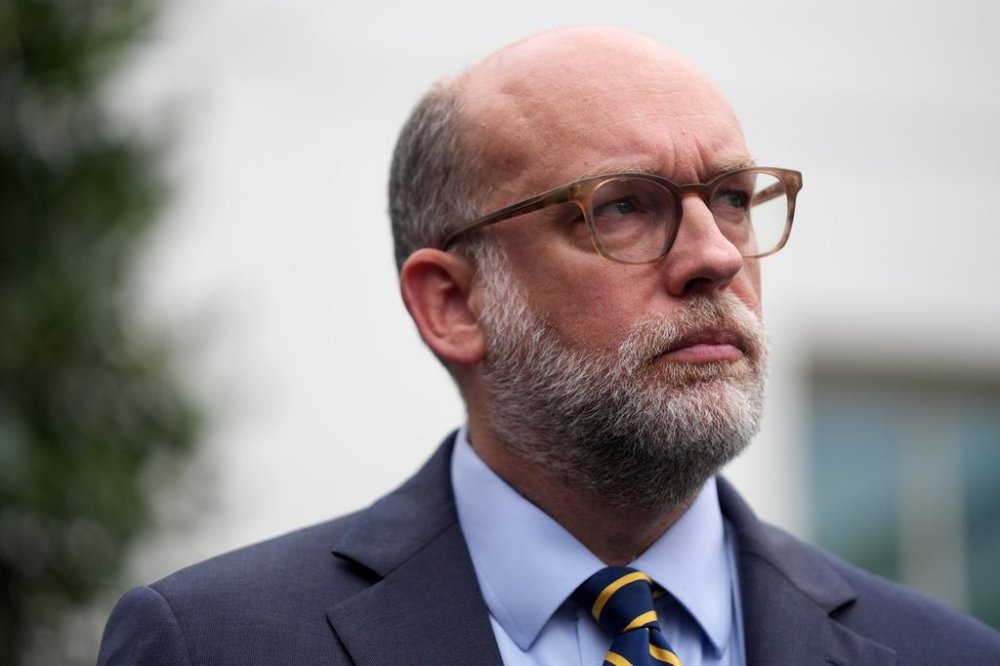Trump nominates new CFPB director, but White House says agency is still closing
Advertisement
Read this article for free:
or
Already have an account? Log in here »
To continue reading, please subscribe:
Monthly Digital Subscription
$0 for the first 4 weeks*
- Enjoy unlimited reading on winnipegfreepress.com
- Read the E-Edition, our digital replica newspaper
- Access News Break, our award-winning app
- Play interactive puzzles
*No charge for 4 weeks then price increases to the regular rate of $19.00 plus GST every four weeks. Offer available to new and qualified returning subscribers only. Cancel any time.
Monthly Digital Subscription
$4.75/week*
- Enjoy unlimited reading on winnipegfreepress.com
- Read the E-Edition, our digital replica newspaper
- Access News Break, our award-winning app
- Play interactive puzzles
*Billed as $19 plus GST every four weeks. Cancel any time.
To continue reading, please subscribe:
Add Free Press access to your Brandon Sun subscription for only an additional
$1 for the first 4 weeks*
*Your next subscription payment will increase by $1.00 and you will be charged $16.99 plus GST for four weeks. After four weeks, your payment will increase to $23.99 plus GST every four weeks.
Read unlimited articles for free today:
or
Already have an account? Log in here »
NEW YORK (AP) — President Trump nominated Stuart Levenbach as the next director of the Consumer Financial Protection Bureau on Wednesday, using a legal maneuver to keep his budget director Russell Vought as acting director of the bureau while the Trump administration continues on its plan to shut down the consumer financial protection agency.
Levenbach is currently an associate director inside the Office of Management and Budget, handling issues related to natural resources, energy, science and water issues. Levenbach’s resume shows significant experience dealing with science and natural resources issues, acting as chief of staff of the National Oceanic and Atmospheric Administration during Trump’s first term.
Levenbach’s nomination is not meant to go through to confirmation, an administration official said, speaking on condition of anonymity to discuss personnel matters. Under the Vacancies Act, Vought can only act as acting director for 210 days, but now that Trump has nominated someone to the position, that clock has been suspended until the Senate approves or denies Levenbach’s confirmation as director. Vought is Levenbach’s boss.

The CFPB has been nonfunctional much of the year. Many of its employees have been ordered not to work, and the only major work the bureau is doing is unwinding the regulations and rules it put into place during Trump’s first term and during the Biden administration.
While in the acting director role, Vought has signaled that he wishes to dismantle, or vastly diminish, the bureau.
The latest blow to the bureau’s future came earlier this month, when the White House said it does not plan to withdraw any funds from the Federal Reserve, which is where the bureau gets its funding, to fund the bureau past Dec. 31.
The White House and the Justice Department are using a legal interpretation of the law that created the bureau, the Dodd-Frank Act, that the Fed must be profitable in order to fund the CFPB’s operations. Since roughly 2022, the Fed has been cash-flow negative since it owns bonds from the COVID-19 pandemic that pay very low interest but must pay out higher interest to the banks that deposit reserves with it. This means, on paper, the Fed is not earning a profit at the moment and therefore has no money to allot to the CFPB.
Several judges have rejected this argument when it was brought up by companies, but it’s never been the position of the government until this year that the CFPB requires the Fed to be profitable to provided the CFPB with operating funds.
“Donald Trump’s sending the Senate a new nominee to lead the CFPB looks like nothing more than a front for Russ Vought to stay on as Acting Director indefinitely as he tries to illegally close down the agency,” said Sen. Elizabeth Warren, the top Democrat on the Senate Banking Committee, in a statement.
The bureau was created after the 2008 financial crisis as part of the Dodd-Frank Act, a law passed to overhaul the financial system and require banks to hold more capital to avoid another financial crisis. The CFPB was created to be a independent advocate for consumers to help them avoid bad actors in the financial system.

